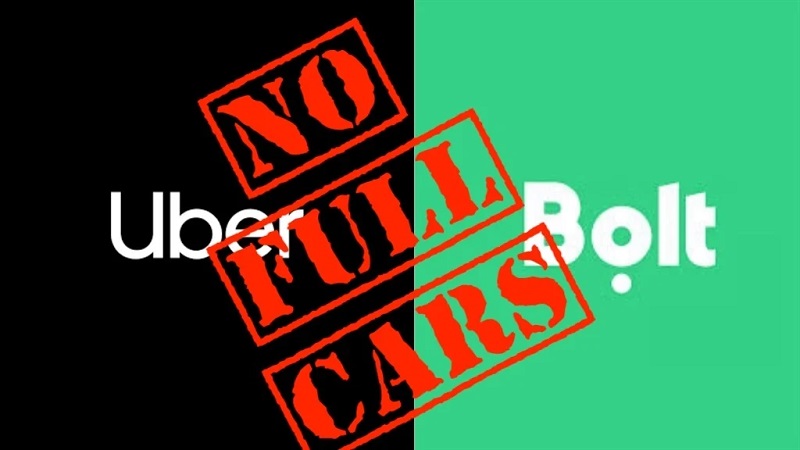Minibus taxi operators vowed to fill their vehicles to 100% passenger capacity, regardless of lockdown rules that limited passenger numbers in an effort to curb the spread of Sars-CoV-2.
Shortly after that threat President Cyril Ramaphosa announced that, while many other restrictions on daily life would continue, the government had decided to allow minibus taxis to be 100% full – to the horror of some who fear that will put vulnerable workers at risk.
The same rules will apply to “bus, taxi and e-hailing, meter[ed] taxis, shuttle services, chauffeur-driven vehicles and scholar transport vehicles”, transport minister Fikile Mbalula said this week.
That means any Uber or Bolt car on a trip shorter than 200 kilometres will be allowed to load up fully, as long as they follow some new rules, most notably forcing passengers to keep windows open at least five centimetres.
That could, in theory, see up to four passengers take to a single standard Uber sedan.
But Uber and Bolt will not allow such loading, at least not yet.
“Uber isn’t operating at 100% capacity,” the company told Business Insider South Africa. For standard sedans it continues to limit passengers to two, and it requires those passengers to sit in the back.
Bolt said that, as updated regulations had not yet been published, it has advised drivers to stick to rules that mean a maximum of two passengers. It also pointed to its “Bolt Isolate” service, available in big cities, which come with a physical barrier between driver and passengers.
Both services have their own legal terms of service, as well as community guidelines, which can set rules stricter than those enforced by the government.
Both also explicitly encourage their drivers, which act with some autonomy as third-party providers, to refuse riders in cases where safety may become an issue, such as when potential passengers are drunk and unruly.
“Discrimination or the refusal to provide services to a person on the basis of age, race or any other characteristic is not tolerated under our community guidelines,” Bolt South Africa said in a May update on its community guidelines. “This said, drivers and passengers alike have the right to politely refuse to proceed on a trip should they suspect that either party has a respiratory illness.”
Source: Business Insider






 WhatsApp us
WhatsApp us 

